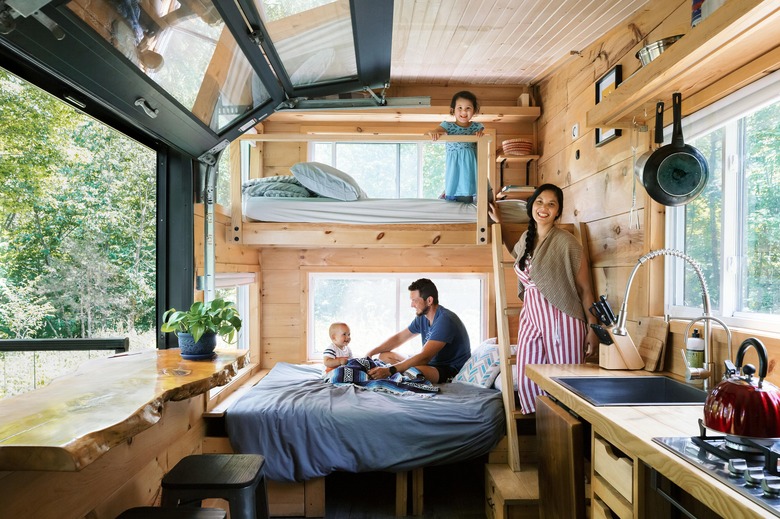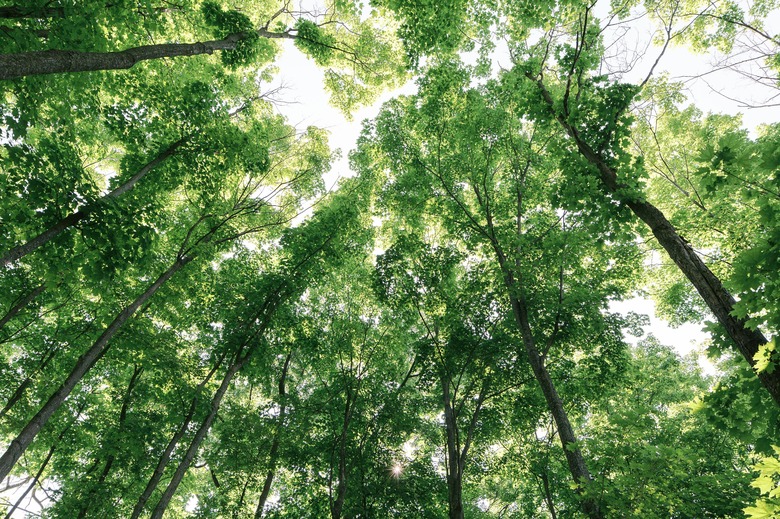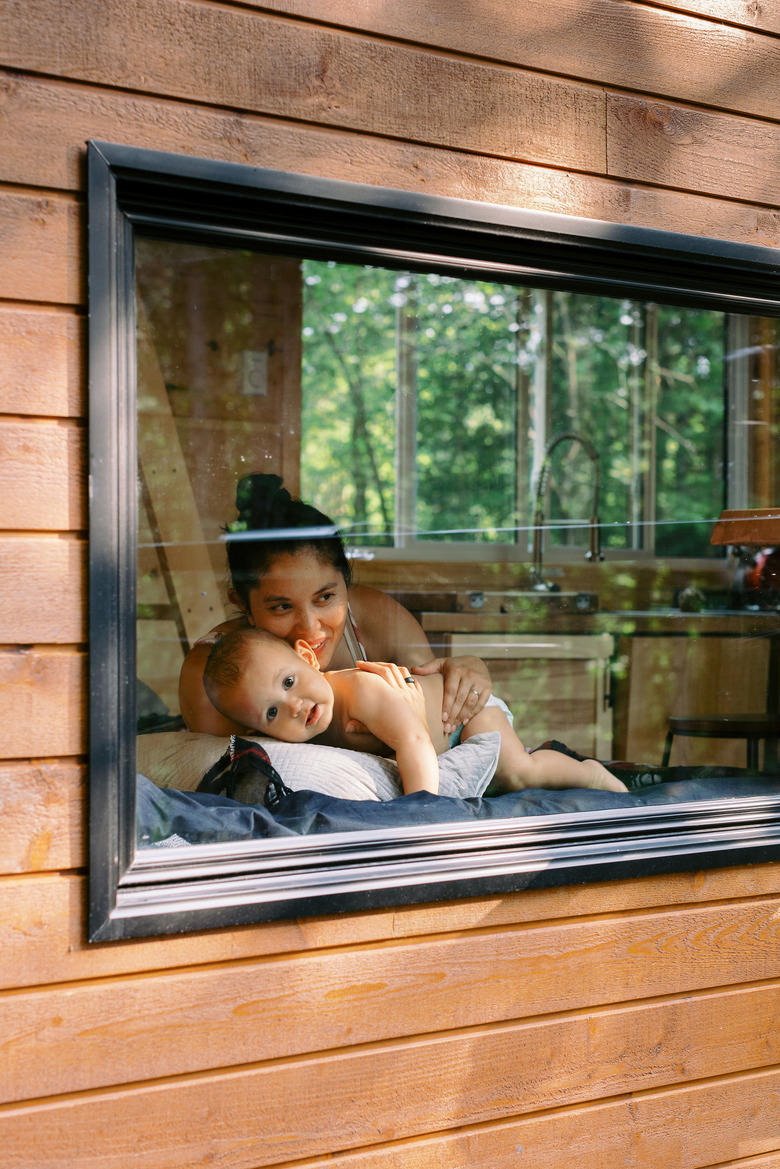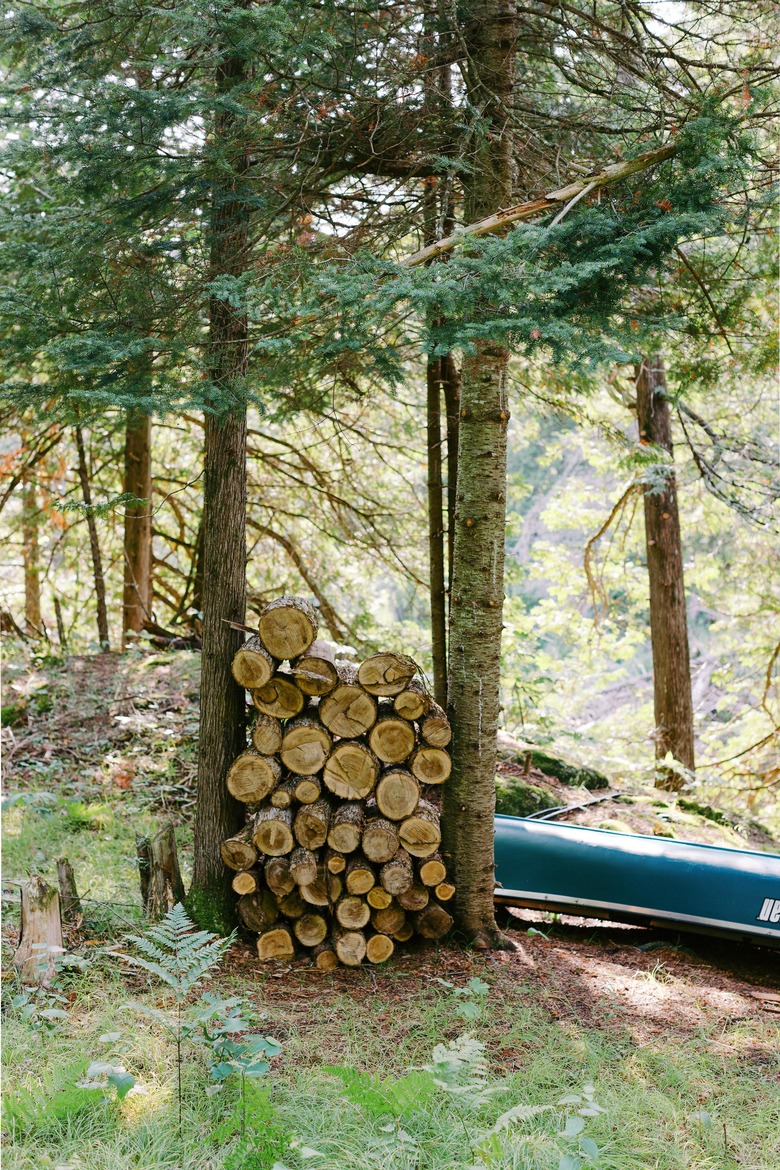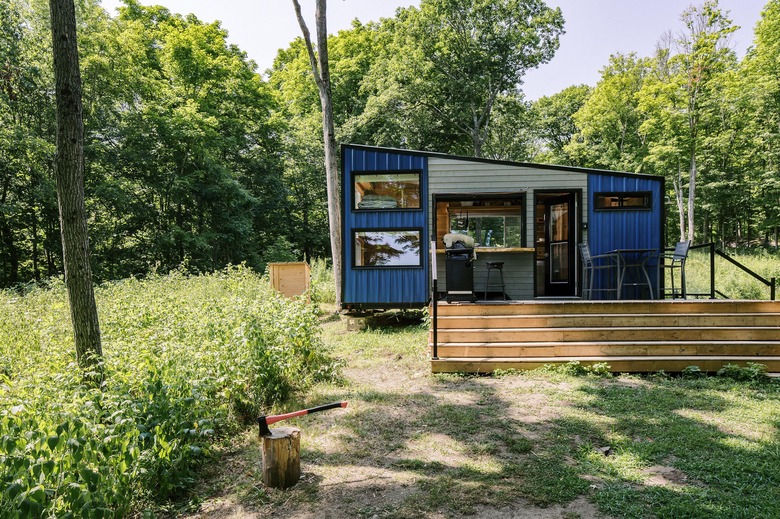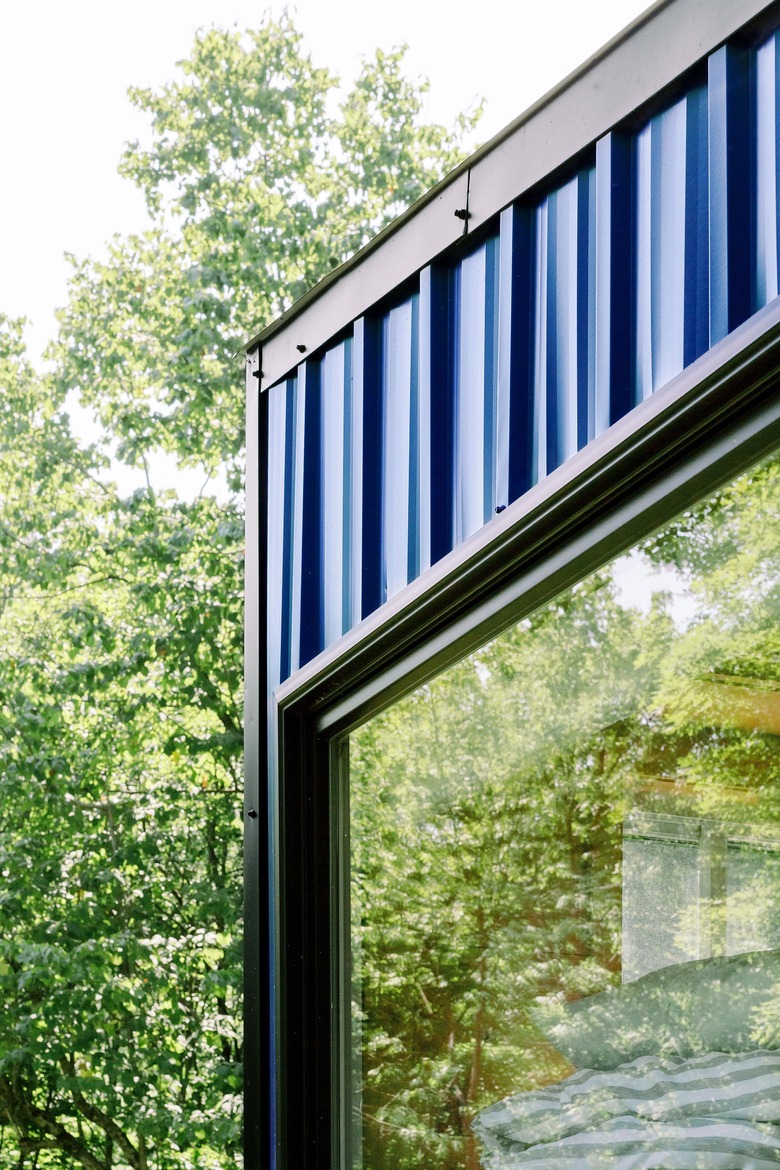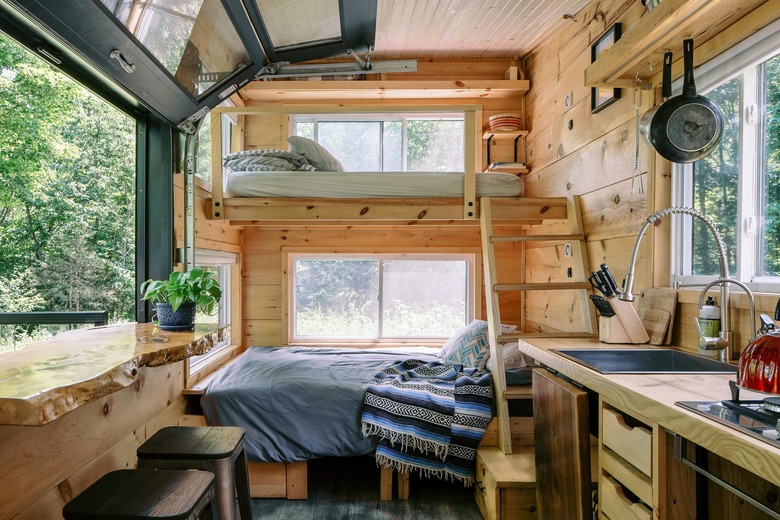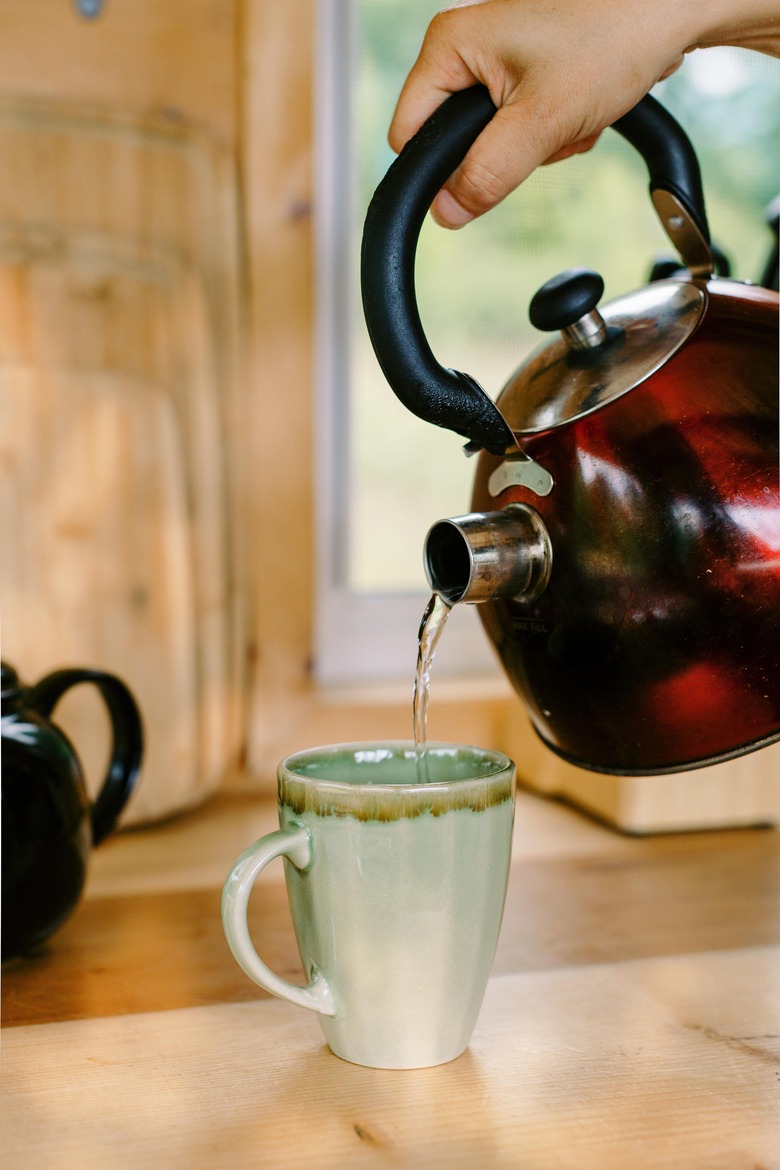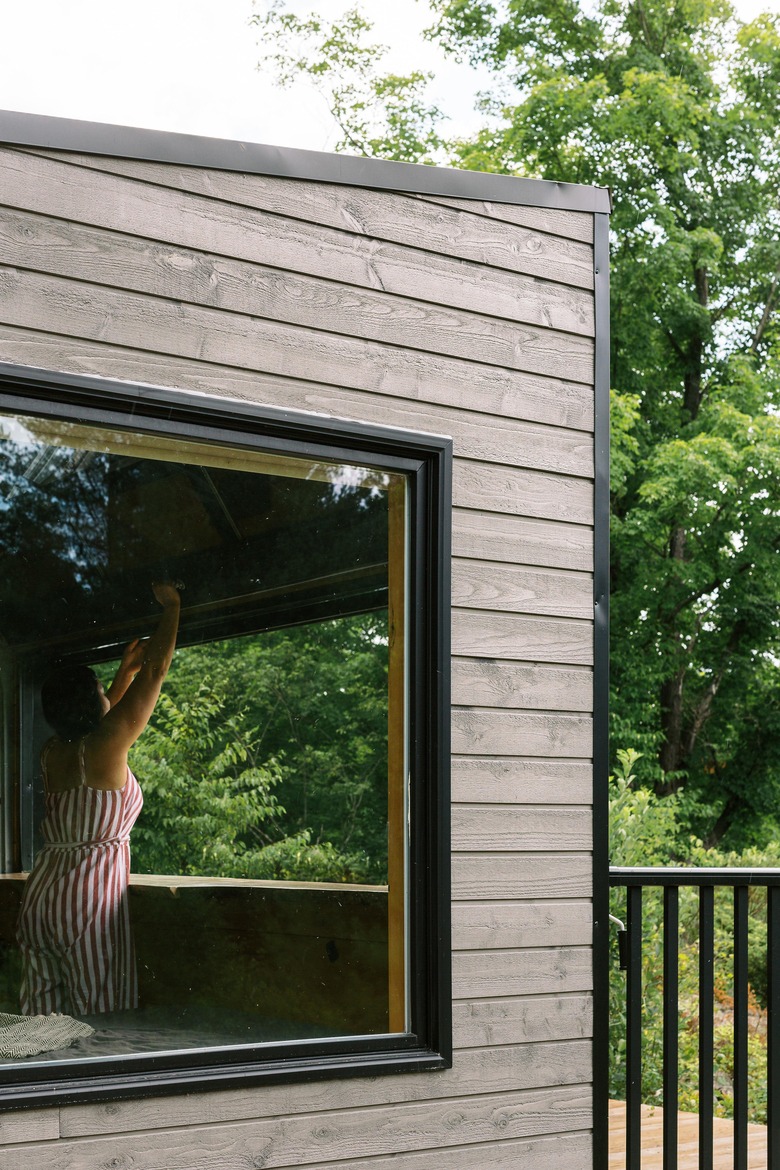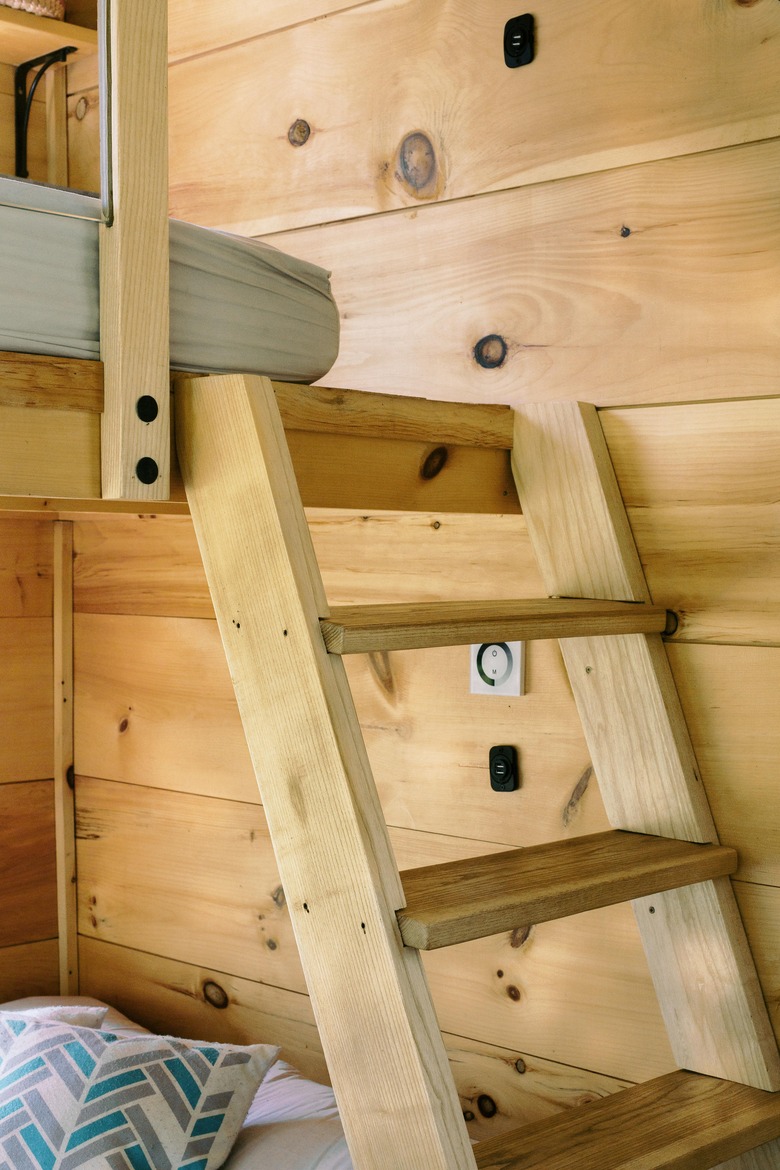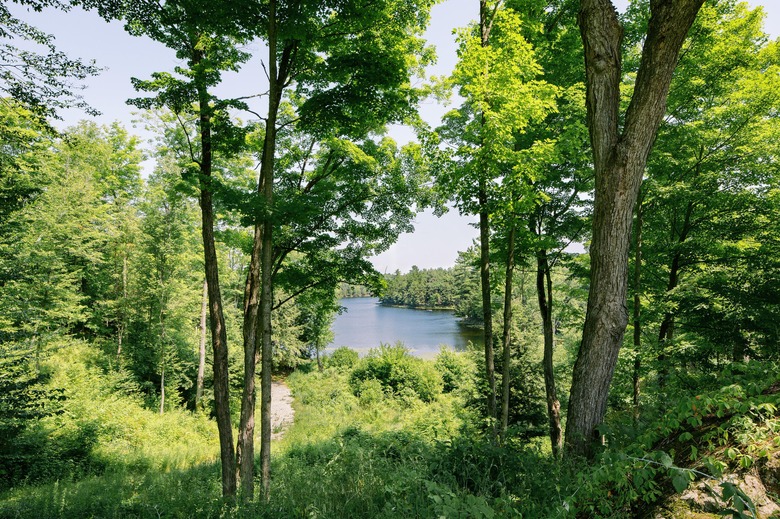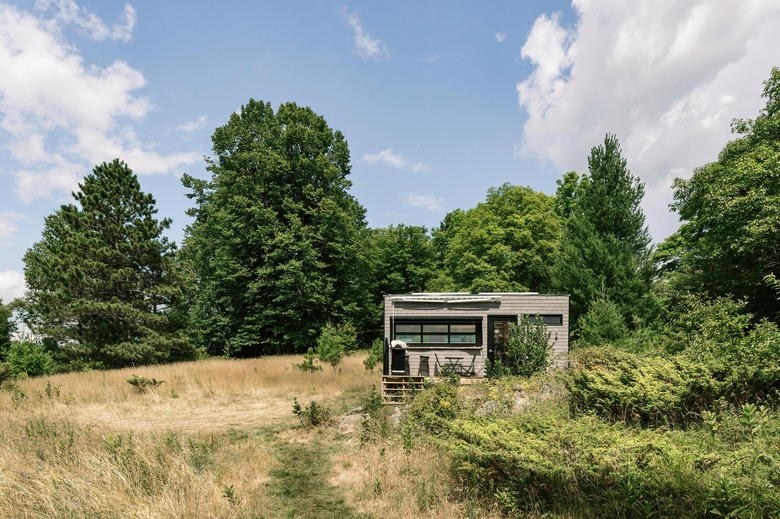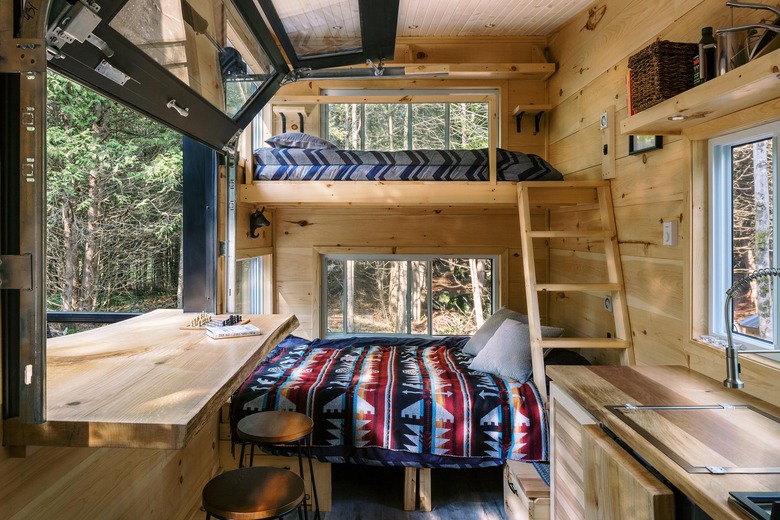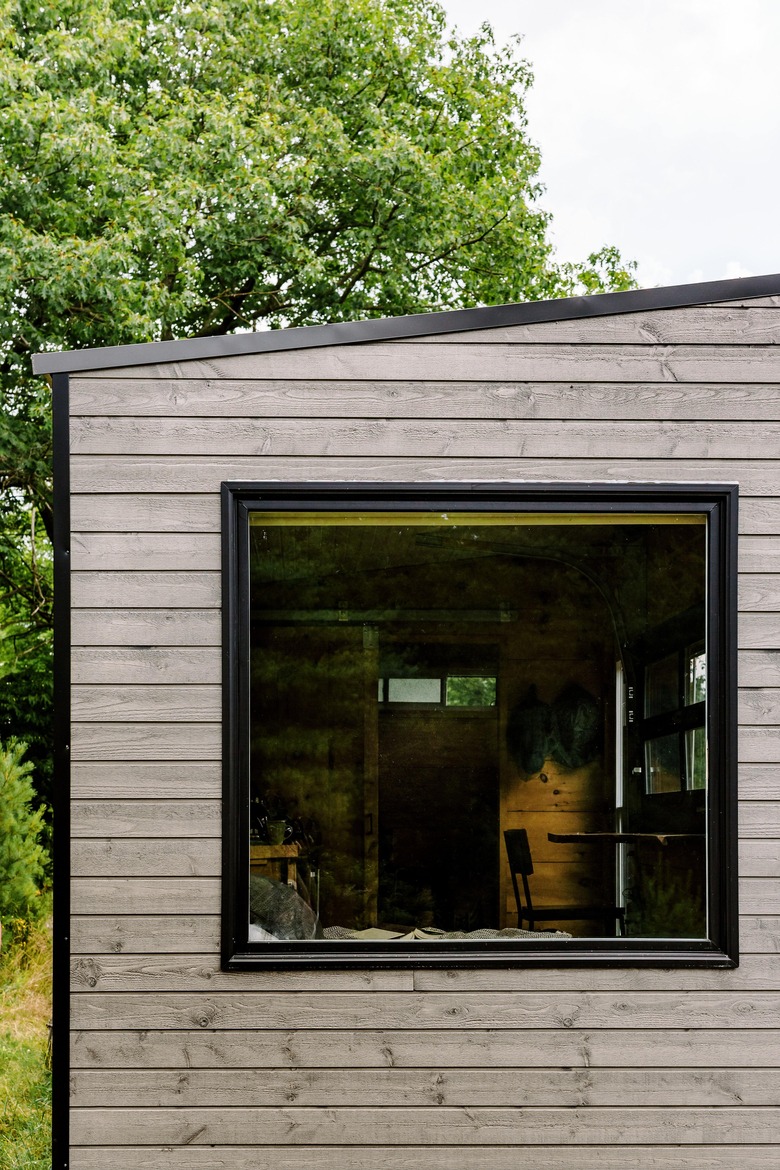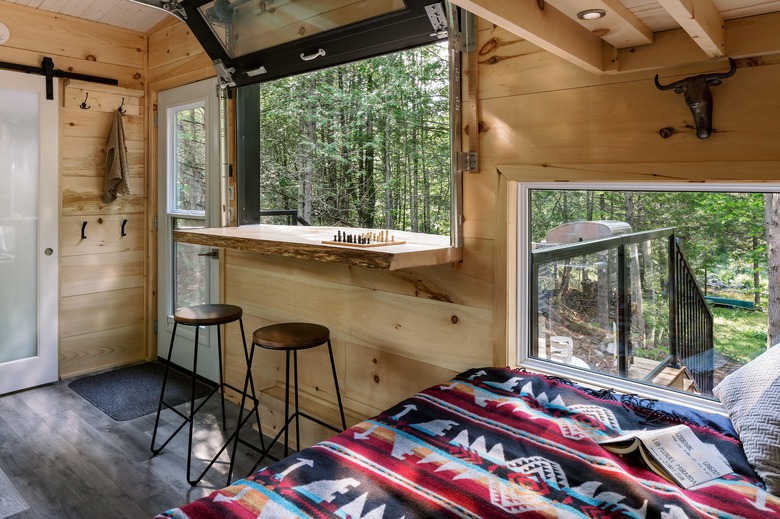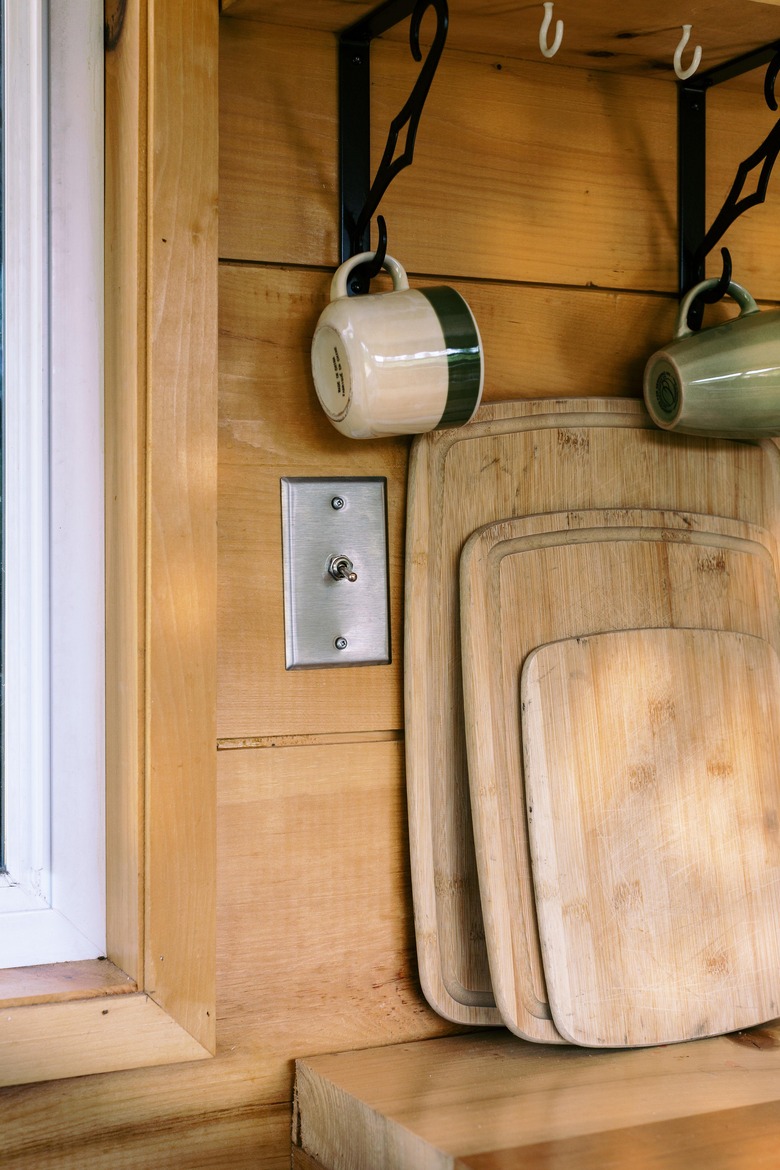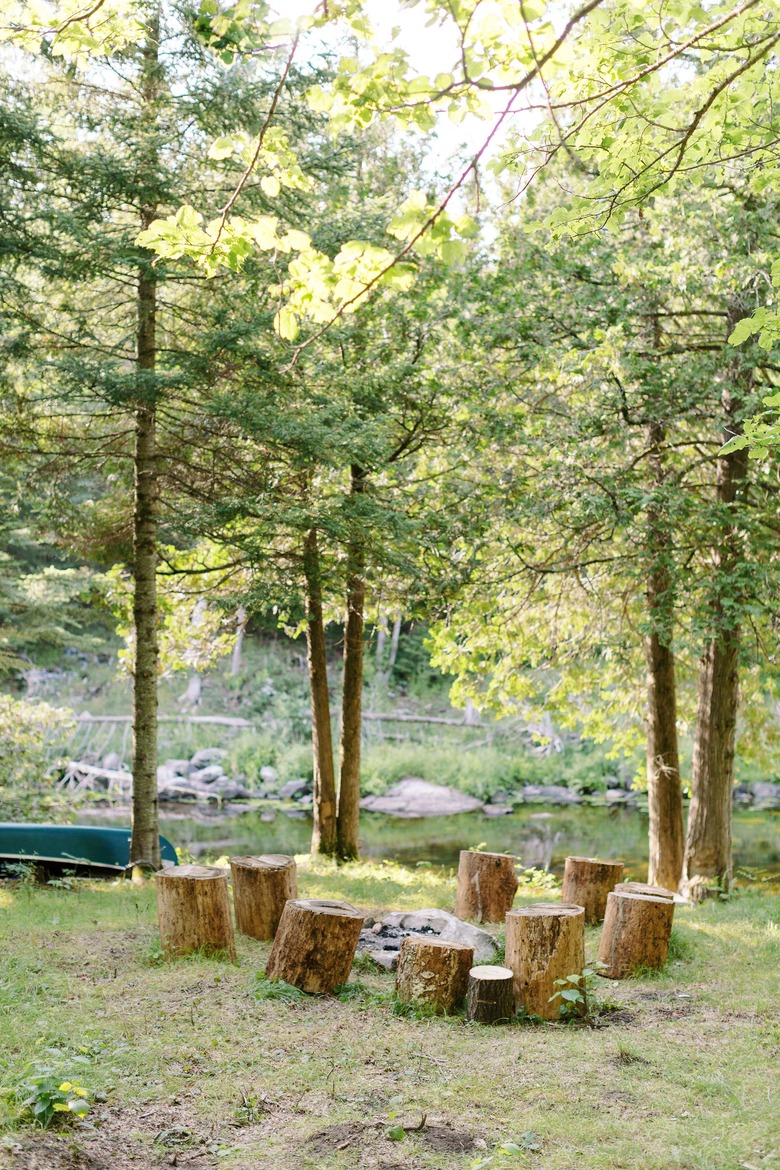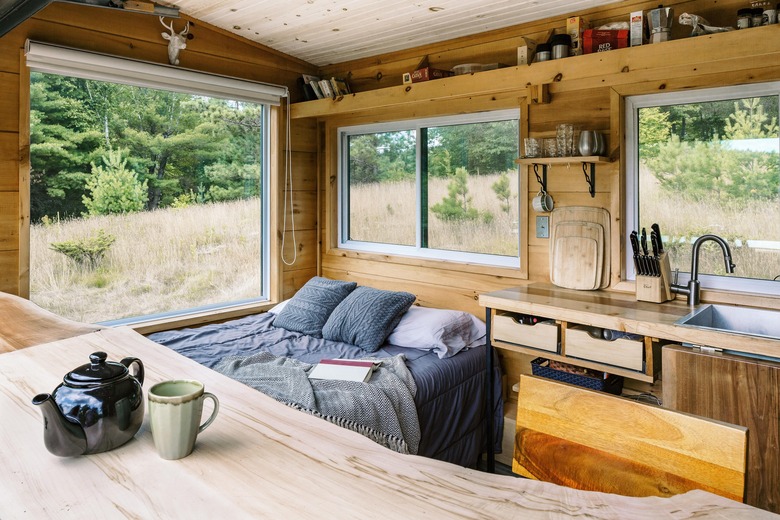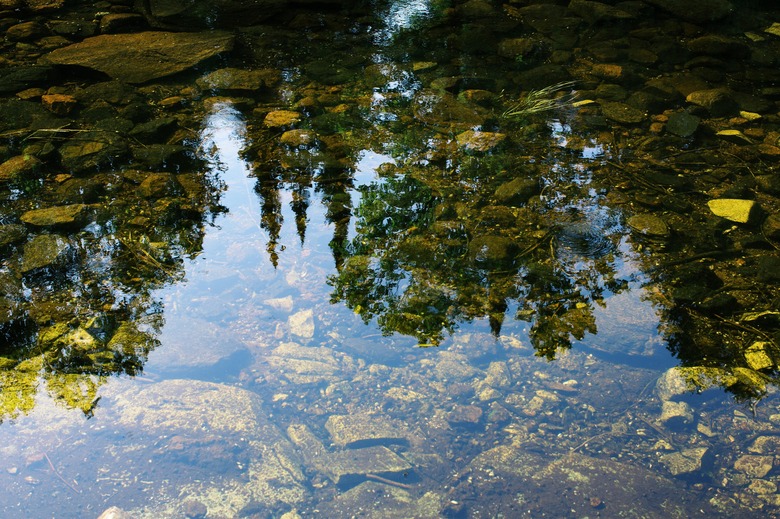The New Hometeliers: Cabinscape
Laura Mendes grew up going to the family cottage in Muskoka. That's what you do when you're from Toronto — you head out early on a Friday to the forests and pristine lakes that dot the landscape just a couple hours outside of the city.
Forest view | Cabinscape
Cottage country (and cottage culture) is a thing in this part of Canada — particularly around Muskoka, the Kawarthas, and Haliburton. Hordes of Torontonians make the trek each promising summer weekend, their navigation systems set to a cottage — some grand, others more modest — that invariably sits next to another cottage, and another. "That's the lifestyle I grew up in," says Mendes. "I loved it. It was foundational for me."
And yet, Mendes sought something a little different once she was off on her own. She and John Loerchner, both artists who met at the University of Toronto, looked to pockets of Ontario that were more rugged, more secluded, a little more off the beaten path.
"A big part of our relationship was going on back country canoe trips, having that wilderness experience," Mendes says. "We just love the feeling of being isolated and secluded."
Then, four years ago, they had a baby. And a baby changes everything.
"As a mother, you're thinking, there are mosquitoes and black flies and the idea of bringing a child who can't swim in a canoe," she says. "That's what motivated us to start looking for alternative accommodations." Mendes and Loerchner wanted a way to be in the backcountry with more creature comforts than backpacking or camping, and yet not the full-fledged cottage experience. "It was John who said, I think there's something here," Mendes says.
"This is a wilderness experience. It takes a little more work. For the most part, people get that, they want to live a more sustainable lifestyle." — Laura Mendes
The couple was already interested in sustainable design as part of their art practice. (They founded Labspace Studio in 2007, through which they create environmentally minded public art.) And so — like so many young entrepreneurs before them — they created the thing they wanted most in the world but could not find.
They called it Cabinscape.
It all began with the Auburn Cabin, a 240-square-foot fully solar tiny home perched on 1.61 acres above Penyck Lake in Central Frontenac County. Inside, there's room for four, a fully functional kitchen, and indoor-outdoor bar with a retractable window overhead, all in a rustic-modern, open-concept design. A simple dock sits down the hill, along 165 feet of waterfront on the blissfully motor-free lake. You wake up to French press coffee, then canoe or fish or hike, read and relax. The creature comforts are there: real beds, thoughtful linens, a four-burner stove, a (composting) toilet, a fridge and a freezer, and a propane heater with a thermostat. It all sits three hours from Toronto — farther afield than the cottages of Muskoka, true, but a welcome world away.
They listed Auburn Cabin on Airbnb in summer 2017. It was booked for the summer in less than 48 hours.
It was pretty clear; Loerchner and Mendes were onto something.
Mica Cabin | Cabinscape
The couple always knew they wanted to expand, but it wasn't necessarily clear where or how or when. "The idea has always been to be very flexible and fluid about the plan," Loerchner says.
One thing has been constant. Instead of purchasing property — and tying up all their capital — they pitched their eco-friendly, tiny-home concept to existing landowners. "In a lot of cottage country, people inherit their land or bought their property a long time ago," says Loerchner. "There's a lot of property out there but nothing is being done with it. I thought, let's rent or lease this land from people. Then, they can get some money out of it, and we can get into these remote areas, but not permanently."
Loerchner — who does most of the pitching, while Mendes manages the marketing and social media from their home in Toronto — also works with the conservation authority, economic development committees, and municipalities in far-flung parts of Eastern Ontario, which typically don't allow land to be permanently developed. But Cabinscape's off-grid cabins, built on trailers, hardly leave a footprint. They're meant to be temporary — but, as yet, they haven't needed to move. The collaborations have worked well for both parties.
"These are remote, low-density areas that need the tourism," says Loerchner. "They're looking for the economic boost that this brings."
For design-minded entrepreneurs in this new era of hospitality, technology enables everything. Technology is how they communicate with guests from back in Toronto, how they manage the day-to-day cleaning and maintenance, how they've scaled their business. Once Mendes and Loerchner realized most of their bookings came from Instagram, they built their own booking platform — and have been handling the end-to-end process on their own.
"We've never been very good at doing things the way people normally do them," Loerchner says.
Over the course of the last two years, they've opened seven more cabins, plus, most recently, a rugged tent. (And Auburn Cabin — their first — is now for sale, to help fund the next phase of their efforts.)
For each, Loerchner handles the mechanics — the solar power, the construction and design of each cabin, the zoning and building codes, getting the plans certified. For many of the cabins, he's hand-built built-ins and furniture, with some pieces milled from lumber on-site. "I grew up around construction to a certain degree," Loerchner explains. "I had an uncle who is plumber and electrician, dad was an engineer, he built a few houses. I had that in my back pocket."
Mendes, on the other hand, shows up in the interiors.
"Certainly, I love homey feelings and eclectic objects," says Mendes. "I like to fill spaces with things that are throwing back to that cottage-y feel."
The textiles and tchotchkes are minimal yet thoughtful. The miscellaneous mugs and board games come straight from memories of Mendes' youth. The books used to come from their own library but are now curated by Penguin Random House.
And yet, despite all the comforts, this is off-grid living. ("Don't let this scare you," they repeat in all of their write-ups.) There are lessons to be learned about sustainable living. "We take for granted that you turn the tap on and there's always water," Loerchner explains. "When you're off-grid, it's all based off the solar system functioning properly, the power, pumping water from the lake." Guests learn — sometimes the hard way — that you can't really run a hairdryer and a rice cooker at the same time when you're relying on solar power. "We really try to be clear in our house manuals," says Mendes. "This is a wilderness experience. It takes a little more work. For the most part, people get that, they want to live a more sustainable lifestyle."
Cabinscape's tiny homes are spread across some 600 kilometers, from Bayfield, along a creek that feeds into Lake Huron, to Pakenham, close to Ottawa — each in a slightly different, yet similarly secluded, locale. At the Joni Cabin, a 128-square-foot home on 77 private, wooded acres, Cabinscape partners with Cartwright Springs, a local brewery that taps into the natural spring water beneath the land. At the Penner Cabin, in Sydenham, near the entrance of Frontenac Provincial Park, they partner with the landowner, Frontenac Outfitters, which runs its own canoe and kayak outfitter, to outfit guests who want to canoe through the 22 lakes in the area.
Some cabins are more remote than others.
The most remote — Mica — opened earlier this summer, and was booked solid within 20 minutes, which was a bit of a surprise to Mendes. The cabin is in a conservation area. "It's very remote, there are no cabins or cottages in sight. You're in the wilderness," Mendes explains. "You either need four-wheel drive to access or to hike in a kilometer."
But — as their experiment with Mica has proven — the trek is no deterrent. Perhaps it is the point.
"What we're doing here is something very different," says Loerchner. "We're not writing a story of people who are running a hotel. This business plan is on the fly. We're not trying to make guesses as to how it's typically done. It clouds you from looking for your own way."
With winter coming — the season they typically focus on construction in preparation for spring — there's talk of a more robust compound, so that groups of more than two or four can venture out into the wild together. Always, there's an eye toward new, unexplored territory — lakes with nary a ripple from another human being, creeks that invite quiet contemplation, wilderness trails that are begging to be followed. And, on a personal note for Mendes and Loerchner, bringing their children along to experience it all.
It's not unlike an art piece taking shape, changing, shifting.
"The whole thing is an experiment," says Loerchner. "We're constantly rewriting it."
1. Credits
Words: Laura Lambert
Images: Will Reid
